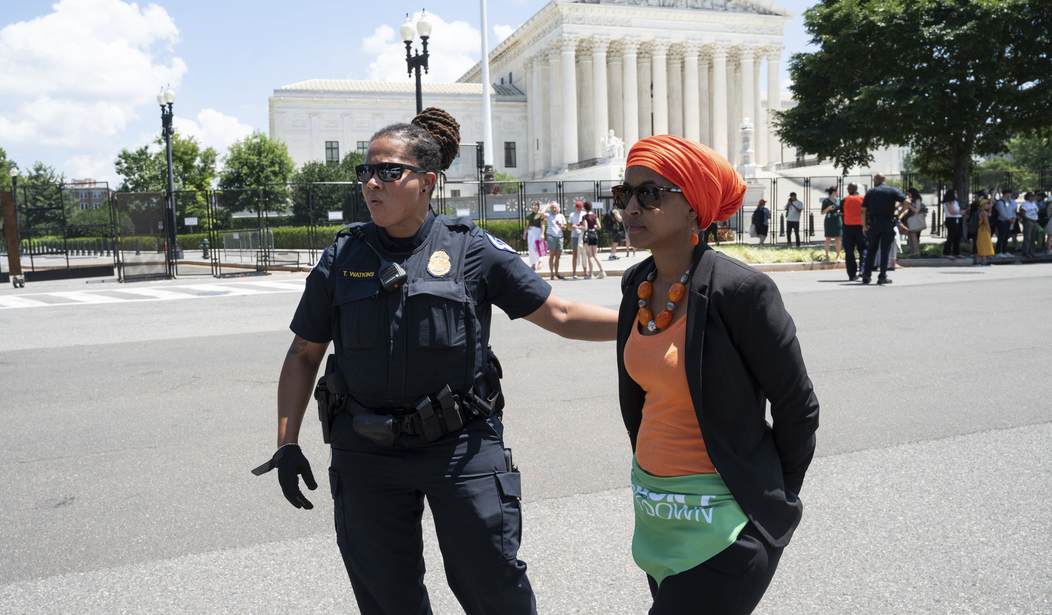Indiana Gov. Mike Pence said he would support legislation to “clarify the intent” of the new law that has drawn widespread scrutiny over concerns it could allow discrimination against gay people.
Pence told the Indy Star he has been in talks with legislative leaders and expects to introduce a clarification bill to the religious objections law sometime this week. Pence did not provide any details, but told the newspaper that making gay Indiana residents a protected legal class is “not on my agenda.”
Pence disputes that the religious objections law would allow discrimination against gay people, although many Indiana businesses, convention-organizers and others have disagreed. The governor said he did not anticipate “hostility that’s been directed toward out state.”
"I just can't account for the hostility that's been directed at our state," he told the newspaper. "I've been taken aback by the mischaracterizations from outside the state of Indiana about what is in this bill."
Since the Republican governor signed the bill into law Thursday, Indiana has been widely criticized by businesses and organizations around the nation, as well as on social media with the hashtag #boycottindiana. Consumer review Angie’s List announced Saturday it had pulled out of a planned expansion in Indianapolis because of the new law.
Angie's List had sought an $18.5 million incentive package from Indianapolis' City-County Council to add 1,000 jobs over five years. But founder and CEO Bill Oseterle said in a statement Saturday that the expansion was on hold "until we fully understand the implications of the freedom restoration act on our employees.
Hundreds protested Saturday outside the Indiana Statehouse against the new law. Protesters held up signs reading “no hate in our state.”
Pence and other supporters of the law contend the discrimination claims are overblown and insist it will keep the government from compelling people to provide services they find objectionable on religious grounds. They also maintain that courts haven’t allowed discrimination under similar laws covering the federal government and 19 other states.
But state Rep. Ed DeLaney, an Indianapolis Democrat, said Indiana's law goes further than those laws and opens the door to discrimination.
"This law does not openly allow discrimination, no, but what it does is create a road map, a path to discrimination," he told the crowd, which stretched across the south steps and lawn of the Statehouse. "Indiana's version of this law is not the same as that in other states. It adds all kinds of new stuff and it moves us further down the road to discrimination."
The measure prohibits state laws that “substantially burden a person’s ability to follow his or her religious beliefs. The definition of a “person” includes religious institutions businesses and associations. The legislation takes effect in July.
Zach Adamson, a Democrat on Indianapolis' City-County Council, said to cheers that the law has nothing to do with religious freedom but everything to do with discrimination.
"This isn't 1950 Alabama; it's 2015 Indiana," he told the crowd, adding that the law has brought embarrassment on the state.
Among those who attended the rally was Jennifer Fox, a 40-year-old from Indianapolis who was joined by her wife, Erin Fox, and their two boys, ages 5 and 8, and other relatives.
Fox said they married last June on the first day that same-sex marriage became legal in Indiana under a federal court ruling. She believes the religious objections law is a sort of reward to Republican lawmakers and their Conservative Christian constituents who strongly opposed allowing the legalization of gay marriage in the state.
"I believe that's where this is coming from — to find ways to push their own agenda, which is not a religious agenda; it's aimed at a specific section of people," Fox said.
Although many Indianapolis businesses have expressed opposition to the law and support for gays and lesbians, Fox worries her family could be turned away from a restaurant or other business and that her sons would suffer emotionally.
"I certainly would not want them to think that there's something wrong with our family because we're a loving family," she said.
Indianapolis Mayor Greg Ballard, a Republican who opposed the law, said he and other city officials would be talking to many businesses and convention planners to counter the uproar the law has caused. "I'm more concerned about making sure that everyone knows they can come in here and feel welcome," Ballard said.
The Indianapolis-based NCAA has expressed concerns about the law and has suggested it could move future events elsewhere; the men's Final Four will be held in the city next weekend.




No comments:
Post a Comment